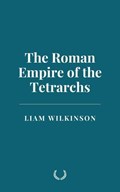The Roman Empire of the Tetrarchs represents one of the most ambitious and significant experiments in governance in ancient history. Emerging from the chaos of the third century, the Tetrarchy was an attempt to restore stability to an empire that had been plagued by civil war, external invasions, and economic decline. The Tetrarchic system was conceived by Emperor Diocletian, whose vision and reforms reshaped the political, military, and cultural landscape of the Roman world. To understand the formation and impact of the Tetrarchy, it is essential to explore the historical context, the intellectual and ideological frameworks of the time, and the key figures whose ambitions and rivalries shaped this extraordinary period.
The third century was marked by what historians have called the "Crisis of the Third Century," a term that encapsulates the near collapse of the Roman state between 235 and 284 CE. The assassination of Emperor Severus Alexander in 235 CE ushered in a period of unprecedented political instability, with over twenty claimants to the imperial throne—often generals elevated by their legions—fighting for control. This era of military anarchy saw the fragmentation of the empire, with the secession of territories such as the Gallic Empire in the west and the Palmyrene Empire in the east. Concurrently, external pressures mounted as Germanic tribes, such as the Alamanni and Goths, raided the empire's borders, while the Sassanid Persians launched devastating incursions into Roman territory, including the capture of Emperor Valerian in 260 CE. Internally, the empire's economic system was in disarray, with rampant inflation, debased currency, and declining agricultural productivity further weakening its foundations.
Amid this backdrop of turmoil, Diocletian emerged as a formidable figure. Born around 244 CE in the province of Dalmatia, Diocletian rose through the military ranks, distinguishing himself through his competence and strategic acumen. After the assassination of Emperor Numerian, Diocletian was proclaimed emperor by his troops in 284 CE. From the outset of his reign, Diocletian demonstrated a remarkable awareness of the systemic issues plaguing the empire and sought to implement radical reforms. Central to his vision was the concept of shared imperial authority as a means of ensuring stability and defense across the vast Roman territories.

